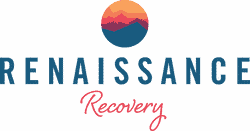Drug Addiction Therapy
What is Addiction Therapy?
At Renaissance Recovery, our treatment programs put an emphasis on the importance of addiction therapy.
Addiction therapy provides clients with access to established clinicians and addiction experts to learn about their addiction and make progress toward overcoming their thought processes associated with substance abuse.

By: Renaissance Recovery
Clinically Reviewed by: Diana Vo, LMFT
Last Updated:
04/19/2024
Addiction Therapy Services
At Renaissance Recovery, we believe in offering a wide range of addiction treatment programs provided through our intensive outpatient and outpatient programs. Within these, we offer several therapy services to give people the edge that they need to beat addiction, learn about how addiction starts, and discover ways to improve their situation.
Here are just some of the addiction therapy services we offer here at Renaissance Recovery Center.
- Mental health IOP
- Dual diagnosis treatment
- Motivational interviewing
- Cognitive behavioral therapy
- Dialectical behavior therapy
- Experiential adventure therapy
- Holistic therapy
- Vocational development
- Family therapy
- Trauma counseling
- PTSD treatment
Table of Contents

Addiction Therapy Programs
There are a number of different types of addiction therapy programs in place to help all those who are struggling with substance abuse problems.

Mental Health IOP
Mental health IOPs (intensive outpatient programs) are more intensive than regular outpatient treatment for mental health issues.
You’ll have access to a range of services during the course of a time-limited program. Treatment is delivered by a team of medical professionals, including licensed nurses, psychiatrists, and therapists.
The core goal of a mental health IOP is to provide you with short-term stabilization, at the same time as resolving any pressing concerns.
With the right balance of support and structure, a mental health IOP can help you to rapidly restore daily functioning.
Most intensive outpatient programs meet three to five times weekly for three hours per day. Programs with a time commitment of less than nine hours per week are considered outpatient programs rather than intensive outpatient programs.
Studies show that patients with mood disorders and anxiety disorders are twice as likely to suffer from substance use disorders as those in the general population. When addiction and mental health conditions co-occur, integrated dual diagnosis treatment like you’ll receive here at Renaissance is the most effective route to long-term recovery – more on our dual diagnosis treatment program right below.
For some clients unable to put life on hold for a month to attend a residential rehab center in California, a mental health IOP is a viable and effective alternative. You can stay connected to your family and still go to work while getting the best mental health treatment available. What can you expect from a mental health IOP near you, then?
Leaving mental health issues untreated is inadvisable. Symptoms will seldom improve without intervention, and they could deteriorate over time. Beyond this, untreated mental health issues often lead to increased substance abuse.

Cognitive Behavioral Therapy
CBT (cognitive behavioral therapy) is a goal-oriented and skills-based form of psychotherapy.
Often used to treat both addictions and mental health disorders, CBT is delivered in both individual and group settings, making it a flexible form of talk therapy. You’ll work closely with a therapist to unpack the closely interlinked nature of your thoughts and feelings, and the way they impact your behaviors.
Through cognitive behavioral therapy sessions, you’ll learn how to identify the people, places, and things that trigger you into poor behaviors like abusing substances. Additionally, you’ll develop healthier coping strategies to help you avoid the automatic thoughts that could trigger relapse, and instead pursue your active recovery.
CBT is firmly grounded on logic and reasoning. You’ll investigate how you can avoid acting on automatic thoughts and impulse, and you’ll ultimately learn how to avoid self-defeating behaviors of all kinds, replacing them with pre-formulated strategies that don’t involve a chemical crutch.
When you engage with CBT sessions, you’ll begin to view things with more objectivity. As you become more proficient, you’ll learn to exercise more control over your thoughts, and you’ll discover that your thoughts do not need to govern your behavior.
CBT is a highly adaptable form of psychotherapy that’s applicable to a variety of conditions, and it’s a central component of all of our addiction therapy here at Renaissance. Master the fundamentals of cognitive behavioral therapy and you’ll feel in control of your emotions as you proceed with your recovery.
Experiential Therapy
Experiential adventure therapy came to prominence in the 1940s with the outward bound movement.
A form of outdoor therapy, experiential adventure therapy aims to improve you psychological, physical, spiritual, and social wellbeing. This is achieve through a combination of the following:
- Nature’s healing properties
- Evidence-based therapy
- Various outdoor activities
- Problem-solving exercises
Experiential therapy emphasizes the importance of personal growth and development through assorted outdoor activities, usually quite challenging in nature.
Holistic Therapy
Holistic therapy is a form of treatment that’s delivered alongside evidence-based therapies like medication-assisted treatment (MAT) and psychotherapies like DBT or CBT.
Holistic therapy is based on holism, the idea that all of the various systems in the body are viewed as a whole unit rather than as discrete systems. The premise of holistic therapy is that these systems working in harmony promotes overall health and well-being.
When holistic rehab is used in the capacity of addiction treatment, the focus is on whole body healing instead of simply treating the symptoms of alcohol abuse or substance abuse.
Holistic addiction therapy involves multiple complementary, holistic, and alternative therapies in combination with elements of traditional medical practice and evidence-based treatments.
Here at Renaissance Recovery Center, all of our treatment programs for substance use disorder, alcohol use disorder, and dual diagnosis give you access to holistic therapy alongside evidence-based treatment for addiction.

Family Therapy
A form of psychological therapy or counseling, family therapy helps you to improve your communication skills while at the same time equipping you with superior conflict resolution skills.
Unlike individual addiction therapy, with family therapy you treat the behaviors of the family as a whole unit rather than focusing on only your own behavior.
Therapists will spend time with each member of the family and will then address the family unit.
There are many different types of family therapy, including:
- Strategic
- Structural
- Bowenian
More important than the style of family therapy, though, is simply getting the family to work together to improve and resolve any issues rather than allowing them to fester and deteriorate.
Dialectical Behavior Therapy
Dialectical behavior therapy (DBT) is a highly specific form of CBT developed by Marsha Linehan.
Originally created to treat the symptoms of borderline personality disorder (BPD), DBT is now applied to a range of conditions, including:
- Substance use disorder
- Depression
- Bipolar disorder
- Dual diagnosis
- Suicidal ideation
- Trauma
When you engage with DBT sessions, you’ll learn how to acknowledge pain and discomfort while still feeling normal and safe. You’ll learn to achieve this even if conditions are sub-optimal. As you become more proficient at coping in hostile environments, you should become less likely to engage in negative or destructive behaviors.
DBT sessions take place through the delivery of a series of modules. You’ll work on the following strategies and techniques:
- Mindfulness: By learning to focus your full attention on the present moment, you’ll spend less time probing the past or worrying about the uncertainty of the future. Mindfulness is a powerful calming technique
- Emotion regulation: As you become more proficient with DBT, you’ll start better understanding how your emotions work. The greater your understanding of your emotions, the less likely you will be to act impulsively. DBT will help you master your emotions instead of being driven by them
- Distress tolerance: DBT will help you to deal with volatile emotions without relapsing
- Interpersonal effectiveness: By sharpening your communication skills and behaviors, you should start noticing an improvement in your interpersonal relationships as a result of DBT sessions

Addiction Therapy at Renaissance Recovery
Get access to all of these addiction therapy services and more if you choose to kickstart your recovery here at Renaissance.
Whether you’re looking to recover from alcohol use disorder, substance use disorder, or dual diagnosis, we specialize in intensive outpatient treatment for these issues and more.
Reach out to the friendly team to discuss your options at 866.330.9449.
Rehabilitation can put an end to addiction
Call and ask the facility directly or call your own provider to determine if your insurance covers the treatment.

